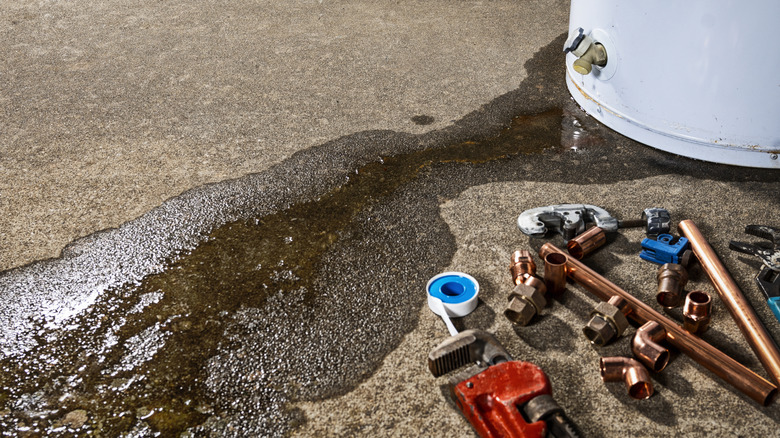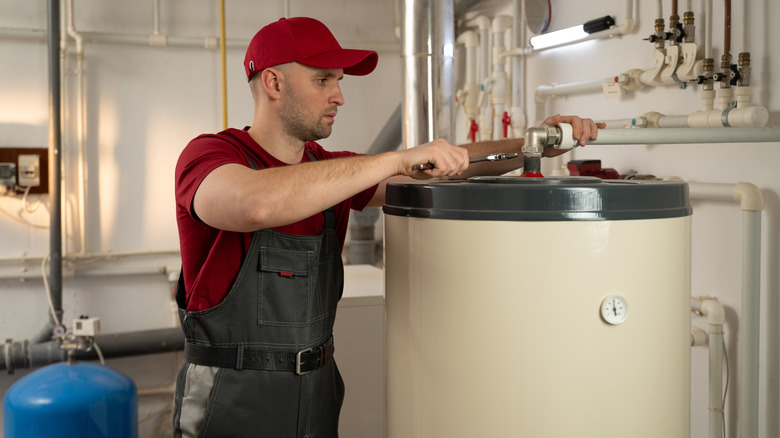Don't Ignore This Red Flag – It May Be Time To Replace Your Water Heater
A hot water heater is an appliance we tend to take for granted. Turn the faucet on, and hot water comes out. We don't think much about how it happens. The water heater just quietly does its job — until it doesn't. There is little in life that is more uncomfortable and unpleasantly surprising than expecting a nice hot shower and getting a blast of cold water instead. If your water heater is old, that is exactly what could happen. It's actually the biggest red flag that your water heater is going bad.
This is often caused by sediment buildup at the bottom of the tank. As water travels through pipes around your home, it picks up solid materials. Even though the water heater has filters, some of these materials still find their way into the tank and build up over time. Eventually, this buildup leaves less space for the required amount of water. It also causes the water heater to lose the ability to heat the water. This buildup can also cause the water heater to corrode and rust, leading to water leaks. This can cause a significant amount of damage if it's left unaddressed. If your water heater is leaking, turn off the water and call the plumber. Here are a few other signs that you need to replace your water heater.
Replace your water heater if it's more than 10 years old
The lifespan of a water heater varies depending on type. Water heater tanks can last 8-12 years. A tankless water heater can last 15-20 years, while a hybrid water heater can last 13-15 years. Solar-powered systems can last up to 25 years. Even if your water heater isn't experiencing any of the problems listed, it's a good idea to replace it if it's 10 years old or older. As water heaters age, they become less efficient overall. Sediment buildup causes the unit to work harder to heat the water. They also begin to rust, and the components start to develop corrosion. It takes longer for the water heater to heat the water. Installing a new unit can improve overall efficiency and lower your utility bills.
You may be able to extend your water heater's life a little longer if you follow these 5 tips for doubling the life of your water heater. Regular maintenance, like draining your water heater a couple of times a year, setting the temperature to 120 degrees or above, using a water softener, and insulating the water heater, can keep your water heater in great shape. But as your water heater nears the end of its life cycle, it's best to go ahead and install a new one before any problems begin to develop.

